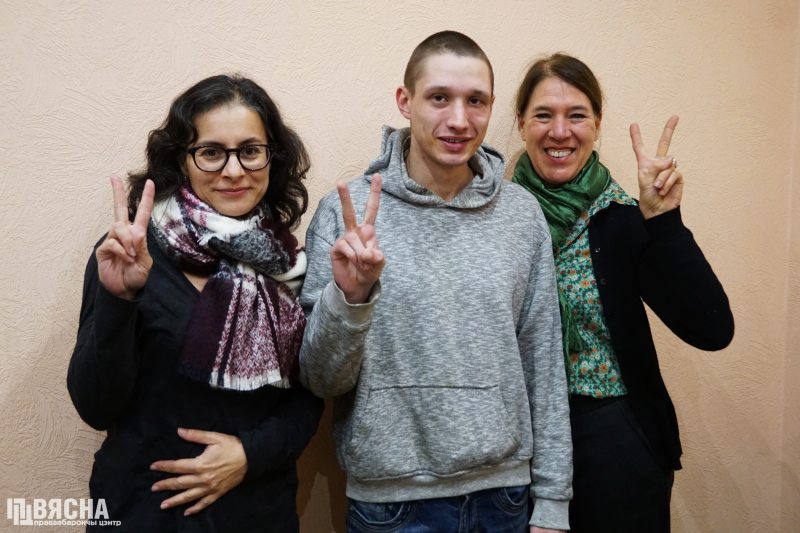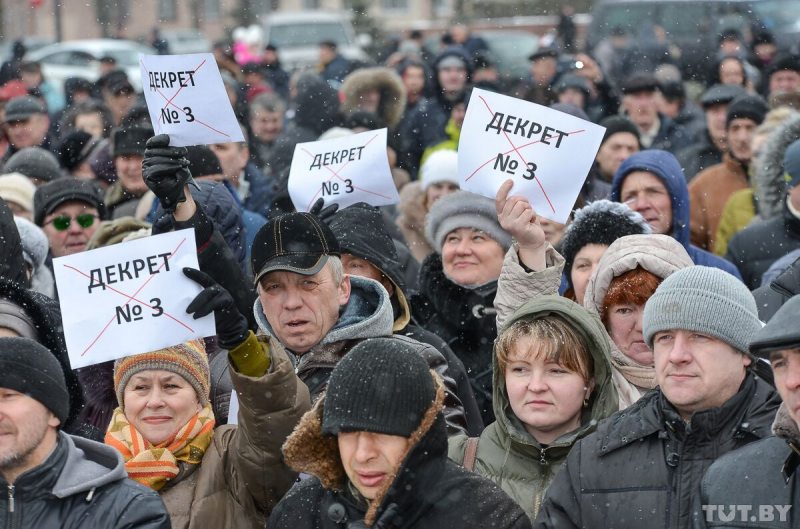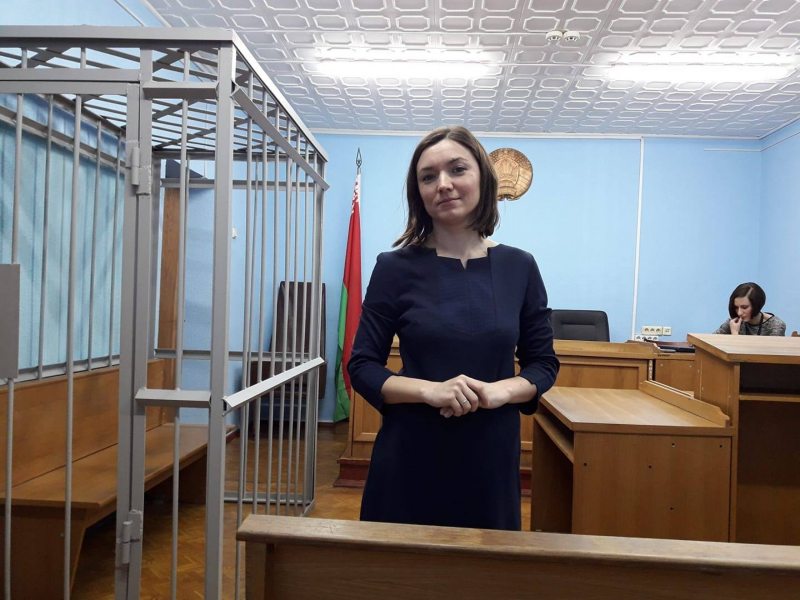Picks of the week
Former political prisoner and Amnesty International’s prisoner of conscience Dzmitry Paliyneka is facing ongoing harassment by the authorities.
On December 13, Amnesty International called on the Belarusian authorities to immediately drop all charges against Paliyenka and cease their campaign of harassment against him.
Since his release from prison on 24 October, Dzmitry has been required to go to his local police station every day to attend ‘lectures’ regarding employment. Recently he has refused to do so. As a result, he has been charged under Article 23.4 of the Administrative Code (disobeying the lawful demand of a police officer) and risks being fined or sentenced to 25 days’ detention.

- Amnesty International campaigner Aisha Jung (left) and Director for Eastern Europe and Central Asia Maries Struthers (right) meet prisoner of conscience Dzmitry Paliyenka shortly after his release in November 2018
Dzmitry Paliyenka told Amnesty that the lectures were not part of the conditions of his release. He insists he should be free to find and chose his own work and that the actions of the police constitute harassment.
“What we’re seeing is a continuing campaign of harassment, this time lead by the local police chief. This must stop,” said Aisha Jung, Senior Campaigner on Belarus at Amnesty International. “Dzmitry served his full sentence and must now be allowed to live his life and enjoy fully his rights and freedoms. Should Dzmitry incur any sanction at any point, his status as prisoner of conscience will be reinstated immediately. There are no legal grounds for the charges brought against him.”
UPD: On December 14, Dzmitry Paliyenka was fined 980 rubles (USD 460). The activist is facing three more similar charges, the first of which will be heard on December 19.
On December 13, Belarusian human rights defenders and trade union activists issued a statement to demand the reversal of Presidential Decree number 1 “On promoting employment”, which amended the controversial Decree number 3 “On preventing social dependency” of April 2015. The latter triggered severe criticism from trade unions and human rights groups, and eventually led to large-scale nation-wide protests in February and March 2017.
The new regulation provides for full reimbursement of utility costs by unemployed persons. It also authorizes detention of alcohol abusers in therapy and labor dispensaries.
Human rights defenders stress that Decree number 1 aims at legitimizing forced labor, which is contrary to the Constitution of the Republic of Belarus and the international instruments ratified by the government.
“In our opinion, Decree number 1 and Decree number 3 are not aimed at promoting employment, but at securing general labor duty, regardless of the citizens’ incomes and the decent standard of living,” said the statement.
Belarusian journalists continue to stand trials for unauthorized work with foreign media, Belsat TV channel and Radio Racyja, in particular.
This week, courts convicted six reporters, including five Belsat correspondents on December 14 in Minsk. All of them were accused of “illegal production of media stories” and sentenced to heavy fines.
In 2018, the charges were used in about 110 cases against journalists. The courts ordered a total of nearly 100,000 rubles (USD 47,000) in fines.



















